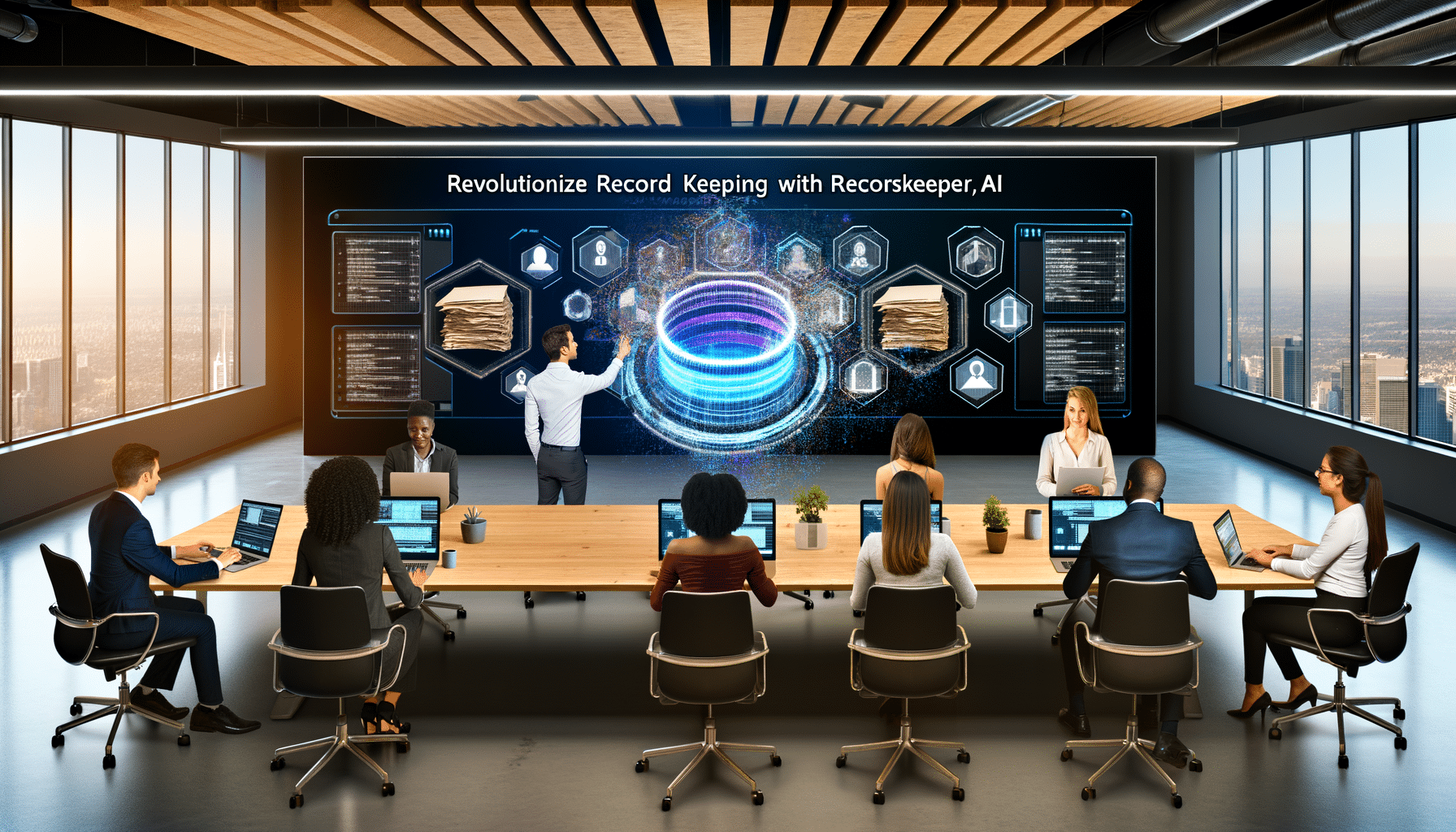- AI Innovations
- March 10, 2023
Blockchain as the Backbone of Future Record-Keeping Systems

Revolutionizing Record-Keeping with Blockchain: A Glimpse into the Future
In today’s fast-paced digital world, record keeping has evolved from dusty file cabinets to sophisticated digital platforms. Yet, the potential of these modern systems is only beginning to be realized. Blockchain, an innovation that most of us associate with cryptocurrencies, is emerging as a powerful ally in transforming how record keeping is managed across industries. The future is here, and it’s blockchain that’s poised to brace the backbone of next-generation record-keeping systems.
Understanding Blockchain: Beyond Cryptocurrency
Blockchain technology is essentially a decentralized digital ledger that stores data across multiple locations. Unlike traditional databases, blockchain guarantees data integrity, transparency, and security through its immutable nature. Each record saved on a blockchain is incorruptible and tamper-proof, ensuring the highest level of data fidelity. Given these inherent features, blockchain is uniquely equipped to tackle many of the challenges that conventional record-keeping systems face today.
The Role of Blockchain in Future Record-Keeping
Blockchain’s influence on future record-keeping cannot be overstated. Here’s why:
- Enhanced Security: Traditional data storage methods are prone to breaches and unauthorized access. Blockchain’s cryptographic encryption ensures that data is only accessible to verified users, safeguarding confidential records from cyber threats.
- Increased Transparency: Blockchain’s distributed ledger nature allows every transaction or data entry to be validated by multiple nodes. This process ensures accountability and traceability, making it an ideal solution for auditing purposes.
- Reliability and Availability: With data stored across multiple decentralized nodes, blockchain systems offer unparalleled data redundancy, ensuring information is never lost to unforeseen failures.
- Immutable Records: The ledger is unchangeable once a record is added, effectively reducing the risk of data overwriting or manipulation. This aspect is critical for maintaining the historical integrity of records in legal, financial, and medical sectors.
Blockchain-Enabled Record-Keeping: Real-World Applications
Several industries are beginning to incorporate blockchain into their record-keeping processes, thanks to its cutting-edge benefits:
- Healthcare: The ability to trace the entire lifecycle of a patient’s medical records without loss or alteration can significantly improve healthcare services, reducing medical errors and enhancing patient safety.
- Supply Chain Management: Blockchain provides comprehensive oversight of goods movement, enabling businesses to track product origins and conditions, thereby assuring quality and ethical standards.
- Finance: A blockchain-powered system can revolutionize financial auditing by offering real-time verification of transactions and indispensable transparency to stakeholders.
- Government: Blockchain’s ability to ensure incorruptible records is valuable in maintaining public records such as land ownership, voting results, and civil registry, fostering citizen trust in governmental operations.
The Challenges and the Road Ahead
While blockchain holds tremendous promise for future record-keeping systems, there are challenges that need to be acknowledged. The technology is still in its nascent stages, with scalability and energy consumption often cited as barriers. Developing a universal standard for blockchain record-keeping could harmonize its deployment across industries, amplifying its reach and effectiveness.
As a founder of RecordsKeeper.AI, I’ve witnessed firsthand how integrating blockchain into record management can provide strategic advantages. Our platform leverages blockchain’s potential, automating categorization and retrieval to transform record keeping from a burdensome task to a streamlined, efficient process.
Conclusion: Embrace Blockchain for a Secure Future
The road to incorporating blockchain as a standard for record-keeping is an exciting journey. By securing data integrity and enhancing transparency, blockchain fortifies itself as the bedrock for future systems. I encourage you to explore the transformative capabilities of blockchain for your own record-keeping needs, ensuring that the integrity, security, and reliability of your records are never compromised.
Stay informed about these revolutionary changes with RecordsKeeper.AI and learn more about how you can benefit from cutting-edge technologies. Follow me, Toshendra Sharma, for more insights on how innovation shapes our future record-keeping landscape.
Toshendra Sharma is the visionary founder and CEO of RecordsKeeper.AI, spearheading the fusion of AI and blockchain to redefine enterprise record management. With a groundbreaking approach to solving complex business challenges, Toshendra combines deep expertise in blockchain and artificial intelligence with an acute understanding of enterprise compliance and security needs.
Related Posts

Revolutionize Record Keeping with RecordsKeeper.AI
How AI transforms traditional record keeping into modern efficiency.
- November 16, 2024

AI-Powered Tools for Automating Healthcare Record Management
Explore the latest AI tools revolutionizing record automation in healthcare.
- November 21, 2023
Archives
- December 2024
- November 2024
- October 2024
- September 2024
- August 2024
- July 2024
- June 2024
- May 2024
- April 2024
- March 2024
- February 2024
- January 2024
- December 2023
- November 2023
- October 2023
- September 2023
- August 2023
- July 2023
- June 2023
- May 2023
- April 2023
- March 2023
- February 2023
- January 2023
- December 2022
- November 2022
- October 2022
- September 2022
- March 2019
Want to get more content like this?
Signup to directly get this type of content to your inbox!!
Latest Post
Organizing External Auditor Access
- December 22, 2024
Document Control in Manufacturing Plants
- December 21, 2024
Handling Rush Financial Report Requests
- December 20, 2024
Managing Record Access After Staff Changes
- December 19, 2024





